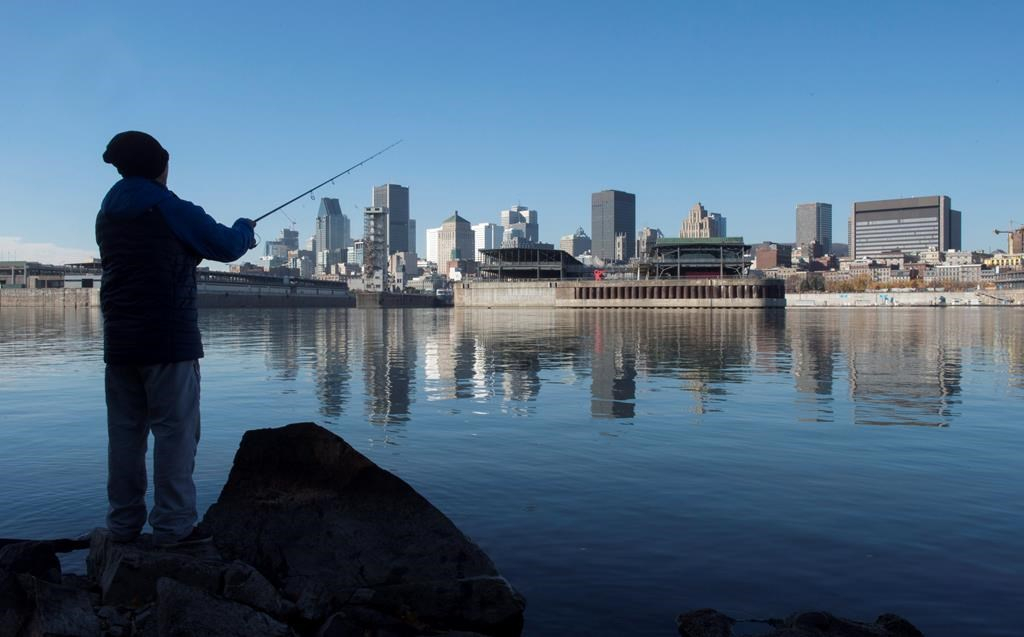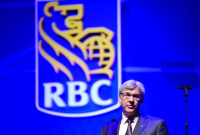Support strong Canadian climate journalism for 2025
While foreign buyers drive up housing costs in Toronto and Vancouver, it appears that an increase in foreign home buyers has yet to have the same impact in Montreal.
According to the latest data from the Canadian Mortgage and Housing Corporation (CMHC), home purchases by foreign buyers increased 40 per cent in Montreal in the first four months of 2017. The National Bank of Canada, however, recently said Montreal's homes "have become the most affordable in a decade."
Foreign buyers accounted for 1.8 per cent of purchases in Montreal's Metropolitan Census Area between January and April this year, notes the CMHC's July report, compared with 1.3 per cent during the same period in 2016. China accounts for the largest increase in origin of the buyers, but most still hail from France or the U.S.
More Chinese buyers interested in Montreal
Last summer, the B.C. government introduced a 15 per cent foreign buyer tax in an attempt to cool its red hot real estate market — the impact of which has started to wane as Vancouver's home sales increased this year. Ontario is proposing a similar tax on home purchases by foreign buyers in Toronto.
Montreal's foreign buyers have increased since the implementation of Vancouver's tax, said Francis Cortellino, CMHC's principal market analyst.
“We see in the report that since the introduction of the tax in Vancouver last August, there’s been an increase — numbers are still small — from investors in China,” he told National Observer. "We can't be 100 per cent sure it's the effect of the tax, maybe there was a little shift in demand from Vancouver to Montreal."
It's a marginal increase that the Québec Federation of Real Estate Boards is not particularly worried about. In Montreal, the housing market is "much more balanced" than in Toronto and Vancouver, said Paul Cardinal, manager of the federation's market analysis department.
“It’s not yet a clientele that will lead to a price inflation on the housing market. We don’t anticipate Montreal to become like Vancouver or Toronto," he said in an interview.
So far, Chinese buyers have primarily settled on single-family homes, which makes Cardinal think they are not speculators or investors but future residents.

Affordability a Canada-wide concern
A recent poll by Ekos Politics found that more than 40 per cent of Canadians believe housing is unaffordable where they live, compared with only one in seven who would rate housing as affordable. Only two per cent of Vancouverites and six per cent of Torontonians feel that housing prices are reasonable, compared with 22 per cent of Montrealers.
In Vancouver, Toronto and Montreal, 79, 68 and 27 per cent of poll respondents rate housing as "unaffordable."
Despite the federation's lack of concern about foreign buyers purchasing Montreal homes, the city's local opposition party, Projet Montréal, has called for for its own foreign buyers tax.
Quebec's provincial government hasn’t taken any formal action toward that request, but confirmed that it is monitoring the situation.
“The housing market of the greater region of Montreal is a balanced market,” said Audrey Cloutier, spokeswoman for Quebec Financer Minister Carlos Leitão, in an email to National Observer.
“However, we are following the situation closely so as to be able to react quickly if necessary. The government is using all available data to do a complete evaluation of the market risks.”
Montreal prices still increasing
Though nowhere near average rates in Toronto and Vancouver, prices are still increasing in Montreal. According to the Canadian Real Estate Association, home prices rose by 3.6 per cent in the past year in the city. But analysts believe foreign buyers are not particularly at fault.
“I would say that for right now, the most important factor that can explain why prices are increasing in Montreal, especially for single-family homes on the Montreal Island...is that there’s not a lot of new construction because land is rare,” said CHMC's Cortellino.
Cardinal also said low unemployment rate combined with high consumer confidence and low interest rate are contributing to the increase.
Even in the rental market, tensions have flared. Comité Logement du Plateau Mont-Royal, a citizen group in the tourist neighbourhood of Plateau Mont-Royal, has been protesting the short-term rental service Airbnb, saying it is driving up prices, contributing to evictions and destroying the residential neighbourhood.
Provincial party Québec Solidaire has put forward a bill to more heavily regulate Airbnb to protect the rental market from inflation.
Other initiatives have sparked interest and controversy like the MonLoyer.Quebec rental platform, which encourages users disclose their rent on a map for better transparency, and to help new renters find suitable accommodation.
“Information in the housing industry is something that’s very expensive…because it’s at the heart of the war, of the business. It’s important for landlords for example to have it but not that everyone has it either,” said the startup's co-founder, Luis-Gaylor Nobre, in an interview with National Observer.
Montreal is becoming more attractive: it was named the world’s best student city in the 2017 QA Best Student City ranking and is growing as a technological hub with public funding and investment from companies like Google and Microsoft.
“Here, it’s still very affordable, but unfortunately as rent prices increase faster than what is asked by La Régie du Logement (Quebec’s rent control organization), it’s certain that we will have a different situation in a few years,” added Nobre.






Comments